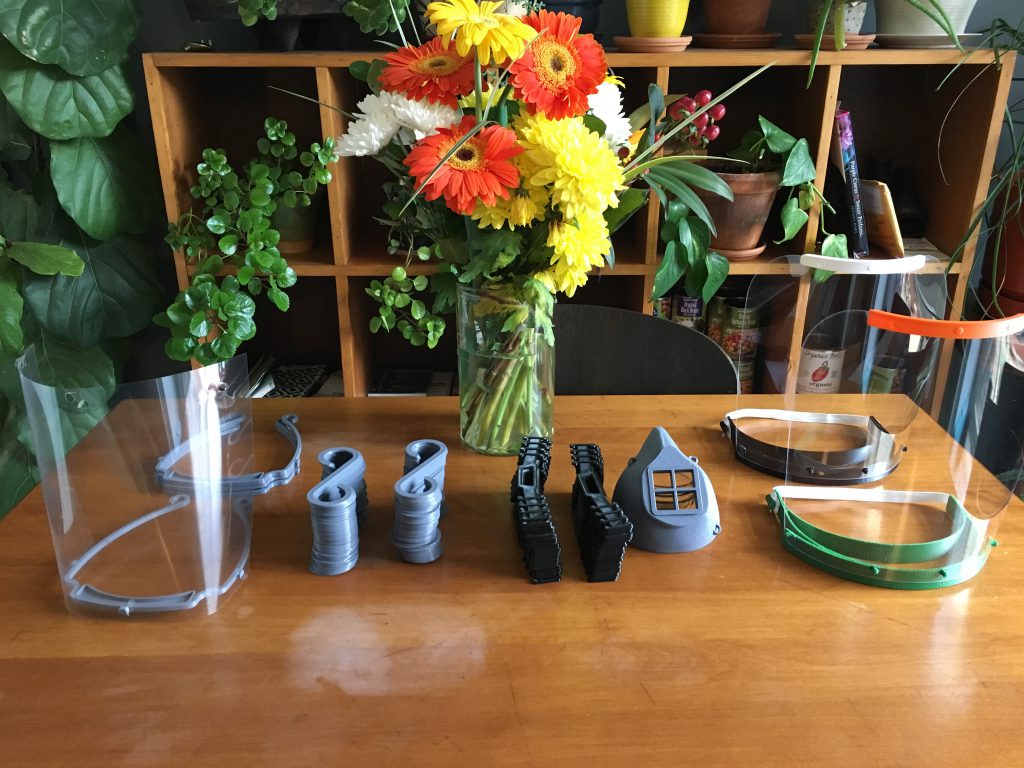Health care personnel the world over are facing the dangers of a critical shortage of personal protective equipment (PPE) during the COVID-19 pandemic. PPE includes items such as isolation gowns, eye protection, face masks, N95 respirators, ventilators, and more. In response to the global supply crisis, agencies like the CDC and FDA are recommending the use of improvised PPE to fill the gap until official supplies are more readily available.
People all around the world are leveraging a wide range of tools and materials to make improvised PPE. Academic health sciences libraries with makerspaces are particularly suited to contribute to this effort. Not only are such libraries likely to have 3D printers and other fabrication tools, they are also likely to have a connection to the front lines of local responses to public health crises.
The University of Maryland Health Sciences & Human Services Library (HSHSL) has been contributing 3D printed parts for various local PPE needs.
- A Baltimore-wide effort to make durable improvised PPE available to health care providers, by the case load at minimal cost. The organizers solicit people with 3D printers and sewing machines to print face shield parts and sew face masks. Organizers then sanitize, assemble, and package them for distribution.
- The Infectious Disease department at the University of Maryland Medical Center. Multiple PPE designs have been prototyped and reviewed for usage.
- All 10,000+ personnel at the University of Maryland Medical Center. All hospital staff wear face masks for extended periods of times, causing broken skin and irritation behind their ears. 3D printed surgical mask tension release bands (“ear savers”) can alleviate this issue. See the “S” design and the various head size design.

The HSHSL is not alone in this effort. Other academic health sciences libraries are involved in similar work, including but not limited to:

